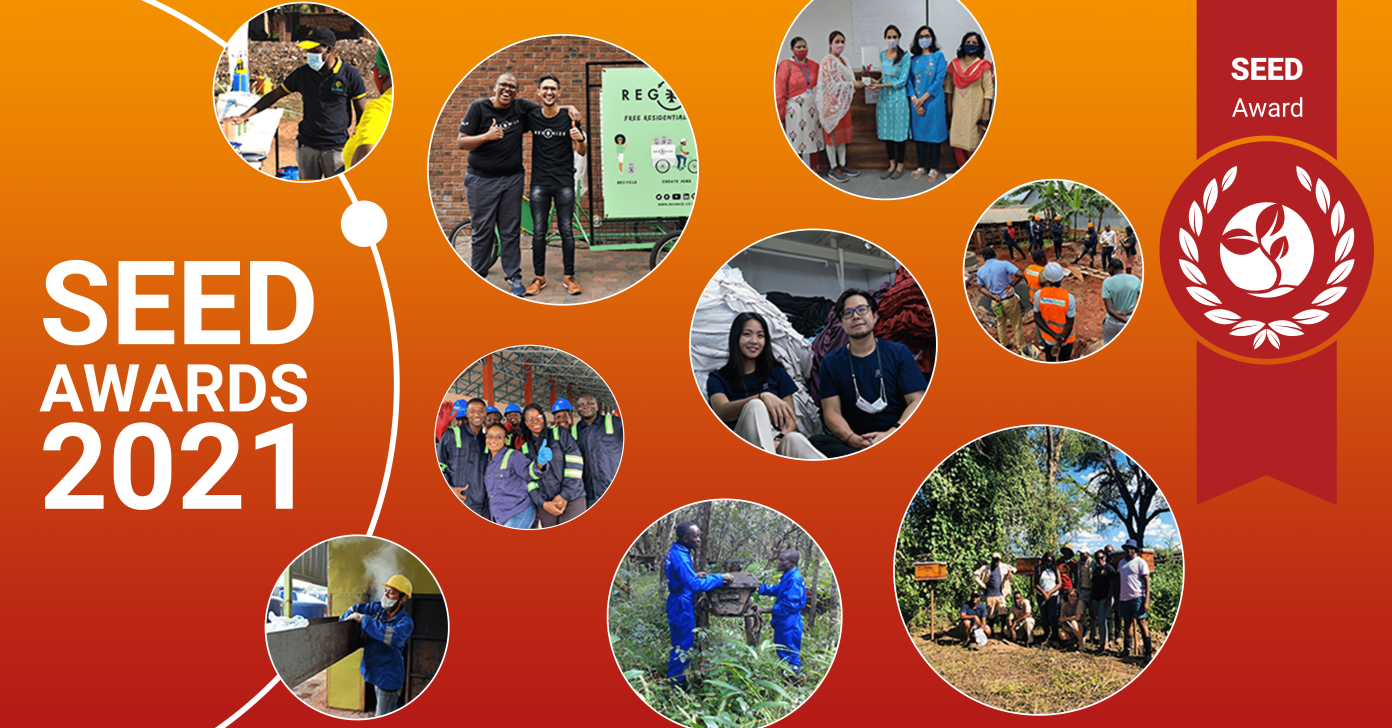Berlin, Germany, 13th July, 2021: Today, SEED announced the winners of the SEED Awards for Entrepreneurship in Sustainable Development (SEED Awards), at the UN’s High-level Political Forum on Sustainable Development (HLPF).
The winners and runners-up, who hail from nine countries across Africa and Asia, showcased their innovative and sustainable enterprises which contribute to climate adaptation and lower carbon use. The nine winners and 39 runners-up are eligible for participation in the renowned SEED Accelerator and Catalyser programmes, to help scale their enterprises and their impact.
In the SEED Low Carbon Awards in Africa, waste management companies were recognised, including Regenize, a Cape Town-based enterprise which gives out virtual cash in exchange for rubbish, and Ghanaian start-up, JVL-YKMA Recycling Plant which converts faecal sludge into fuel briquettes. Peec Energy from Uganda was also selected for its smart metering solutions for solar mini grids.
The SEED Low Carbon Award winners in Asia focused largely on enterprises utilising the circular economy model. Indian start-up PadCare Labs which creates recyclable materials out of soiled menstrual pads took home the Award, alongside Sampangan from Indonesia which converts waste into high-value, sustainable materials, and Thai start-up Moreloop which upcycles dead-stock fabrics to tackle waste in the fashion industry.

 Locations
Locations